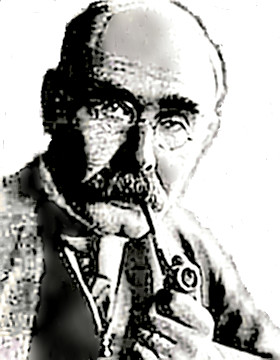
Joseph Rudyard Kipling was an English author and poet, born in Bombay, British India, and best known for his works The Jungle Book (1894), The Second Jungle Book (1895), Just So Stories (1902), and Puck of Pook's Hill (1906); his novel, Kim (1901); his poems, including Mandalay (1890), Gunga Din (1890), If— (1910) and Ulster 1912 (1912); and his many short stories, including The Man Who Would Be King (1888) and the collections Life's Handicap (1891), The Day's Work (1898), and Plain Tales from the Hills (1888). He is regarded as a major "innovator in the art of the short story"; his children's books are enduring classics of children's literature; and his best works speak to a versatile and luminous narrative gift. Kipling was one of the most popular writers in English, in both prose and verse, in the late 19th and early 20th centuries. The author Henry James famously said of him: "Kipling strikes me personally as the most complete man of genius (as distinct from fine intelligence) that I have ever known." In 1907, he was awarded the Nobel Prize in Literature, making him the first English language writer to receive the prize, and he remains its youngest-ever recipient. Among other honors, he was sounded out for the British Poet Laureateship and on several occasions for a knighthood, all of which he rejected.
However, later in life Kipling also came to be seen (in George Orwell's words) as a "prophet of British imperialism." Many saw prejudice and militarism in his works, and the resulting controversy about him continued for much of the 20th century.
He died of a hemorrhage from a perforated duodenal ulcer on 18 January 1936, two days before George V, at the age of 70.
However, later in life Kipling also came to be seen (in George Orwell's words) as a "prophet of British imperialism." Many saw prejudice and militarism in his works, and the resulting controversy about him continued for much of the 20th century.
He died of a hemorrhage from a perforated duodenal ulcer on 18 January 1936, two days before George V, at the age of 70.